Early in 2013, poet Christian Wiman was interviewing for a job on the faculty at Yale Divinity School and the Yale Institute of Sacred Music. Then the esteemed editor of Poetry magazine, Wiman had revived the nation’s most storied poetry journal from a protracted sleep and become a leading literary influencer. Now, as he drew ever closer to a position at Yale, Wiman was uncertain about what the move might mean for him as a writer.
“It can be damaging to a literary career to come out as a Christian or to work at a divinity school,” Wiman said. “It was not at all a natural move, given the world that I was coming from.”
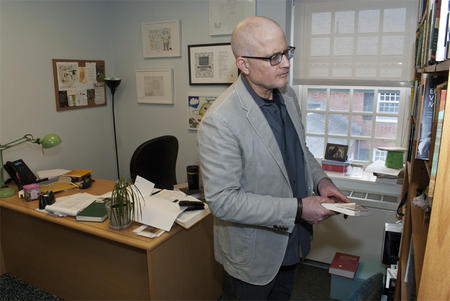 His reluctance was settled when he came to Yale to teach a seminar as part of the hiring process. Wiman relates the moment in his 2018 book, He Held Radical Light: The Art of Faith, the Faith of Art. “I had flown home that very morning with my life … on the verge of a great change,” he wrote. “‘Everything in you must bow down,’ a student told me his bishop had told him that very morning, words that suddenly iced my own spine.”
His reluctance was settled when he came to Yale to teach a seminar as part of the hiring process. Wiman relates the moment in his 2018 book, He Held Radical Light: The Art of Faith, the Faith of Art. “I had flown home that very morning with my life … on the verge of a great change,” he wrote. “‘Everything in you must bow down,’ a student told me his bishop had told him that very morning, words that suddenly iced my own spine.”
At that moment, Wiman knew he must surrender to the direction his life was pointing him in. He accepted the offer to come to Yale.
***
RELATED STORY: Yale names Christian Wiman Clement-Muehl Professor of Communication Arts
***
Seven years later, it’s hard to imagine the YDS and ISM religion and literature professor ever doubting the wisdom of the move. Far from impeding his literary life, coming to Yale seems to have inspired it. During the first fifteen years of his career, Wiman had authored seven books of poetry and prose; since arriving in New Haven in 2013, he has published five more. In addition to Radical Light, there have been two volumes of poetry, a collection of selected poems, and a poetry anthology. Between the new volumes have come essays and reviews for Harpers, Atlantic, The New York Times, and The Christian Century, among other publications, and poems in The New Yorker, The Nation, Commonweal, and similarly prestigious magazines and literary journals.
Currently on sabbatical for the Spring 2020 semester, he is embarking on his next book, an anthology of poems on the idea of “home.”
Wiman’s path to Yale began in 2010, when he gave the ISM’s Lana Schwebel Memorial Lecture in Religion and Literature and met with professors and students. The visit produced an instant and mutual attraction between man and institution. Back in Chicago, Wiman wrote to ISM director Martin Jean and then-Professor of Religion and Literature Peter Hawkins, asking if there might be a place for him on the faculty.
“Chris gave one of our very earliest Schwebel lectures and I was blown away,” Jean recalls. “It was an essay on faith, art, and justice that wove together references from both creative and theological literatures. I remember my heart pounding with excitement throughout. Peter Hawkins had a similar reaction, as I recall. The next day we met for breakfast, and the rest, as we say, is history.”
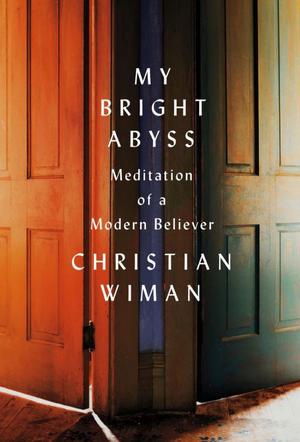
The profundity of his thought and the stoic grace with which he faced his illness made Wiman’s arrival at YDS feel like a triumph and a miracle. While his health is not a subject he discusses casually, in an essay titled “The Cancer Chair” in the February 2020 Harper’s, he described receiving continuing treatment to control the disease.
Wiman has established himself as a creative force within YDS and the greater Yale community. His classes are typically oversubscribed, forcing him to winnow down the hopefuls to a manageable few. He enhances the intellectual climate in multiple ways, from contributing to university publications, offering sermons, and giving public addresses to bringing a lengthening list of celebrated poets and writers to campus, many his personal friends. His academic status is equally dynamic. In 2018 he was promoted to Professor of the Practice, and in February was announced as Yale’s new Clement-Muehl Professor of Communication Arts. In his letter announcing the appointment, Yale President Peter Salovey praised Wiman for bringing “distinction to the university.”
“Chris has made a wonderful contribution to the life of the school and really put us on the map in some ways,” Peter Hawkins told me in an interview last fall on the eve of his retirement. “I hope—and given his productivity, assume it’s true—that this community, this shift of his vocation, his teaching … that he’s grown because of where he’s planted.”
Wiman called his elder colleague “a model” in how he conducts his role as teacher and mentor at the Divinity School and ISM. In 2015, he had proclaimed his gratitude for his Yale family when he dedicated his poetry collection Once in the West, “For Martin Jean and Peter Hawkins.”
The YDS influence on his art and thought is everywhere apparent. His Harper’s essay is built upon a lecture on Job he was preparing for a class on “suffering” he co-taught with fellow professor Miroslav Volf. Likewise, Volf’s work on joy inspired Wiman’s anthology, Joy: 100 Poems. His most recent poetry volume, Survival is a Style, newly published this month, contains a number of poems that seem drawn from his life at Yale, including one titled, “Faculty Meeting, Divinity School.”
But it is engagement with students that feeds Wiman the most. From that student in 2010 who repeated the message to “bow down” and those he includes in the acknowledgments of his books, to the insights and ideas of the students in his classrooms, the poet-professor finds he is continually the pupil of those he is teaching.
This student influence is one of many topics Wiman spoke of in January as part of a wide-ranging conversation with me on art, writing, teaching, faith, and the rewards of family. During the exchange, Wiman spoke of aspects of his life at Yale for the first time and offers a glimpse of himself not only as a solo artist, but as part of the Yale community. The interview that follows was drawn from several conversations conducted by telephone, email, and in person, and has been edited for content and length by the author in collaboration with Wiman.
—
Timothy Cahill: In 2010, you were invited to deliver the Schwebel Lecture, an experience that led directly to your joining the faculty at YDS and the Institute of Sacred Music in 2013. What’s the rest of that story?
Christian Wiman: I gave the lecture because of Nate Klug [’13 M.Div.], who had been an intern at Poetry magazine when I was editor. Nate came to YDS after leaving Chicago and … convinced Peter [Hawkins] to bring me for the Schwebel Lecture series. I spent a lot of time with YDS students during that visit and found that I really enjoyed the conversations. I was already thinking about leaving Poetry magazine at the time and had already made some initial inquiries to places I might go. When I got back, I wrote Martin [Jean, director of ISM] and said, “I think I’m leaving. What are the chances something might be available at the ISM?” It took a while, quite a long while, but eventually they came up with a position and it worked out.
TC: Why did you want to leave Poetry? You had been there since 2003 and had more than $200 million to work with, thanks to the Lilly endowment.
CW: It was time to leave. Most editors—literary editors, I mean—go stale after about seven years. You lose your taste. You lose your ability to stay on top of things, and you just don’t really care about staying on top of things. I lasted ten years, but all my instincts were telling me it was time to move on.
TC: What was it about that first time at Yale that made you think this would be a good home.
CW: I had a wonderful dinner with Peter [and YDS/ISM faculty members] Tom Troeger and David Mahan, and we talked very directly about faith and literature. That made an impression on me. And then it was the students, who were intense and ardent and confused in ways that I understood all too well.
TC: Was there a sense of wanting to find a job that would give you more time to think and write?
CW: I’m not sure it does work out to be more time. I’ve always found the tension between my professional work and my writing a very difficult thing to manage. I certainly worked more actual hours as an editor, but teaching is psychologically demanding in ways that editing isn’t.
TC: How do you keep your work as artist and teacher in balance? How do you see your role at YDS?
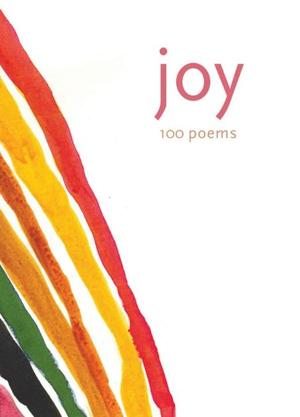
TC: Does that pastoral role feel new to you? Editors are constantly ministering to writers’ needs all the time, after all.
CW: I suppose I was shoring up writers a lot, but it’s utterly different than having someone right in front of you whose faith is in crisis. Editing always allows for a certain distance.
TC: Do you engage differently with poetry now, as an academic, than you did as an editor?
CW: There’s a crossover. As an editor, I was always trying to come up with ideas, also always trying to present material in a way that was usefully provocative rather than merely didactic. Some of that comes into teaching. Of course, I’m much more straightforwardly didactic in a classroom; there are things I know that the students don’t, and I need to teach them that. But the ultimate goal, with teaching as with editing, is to make people love something.
TC: Peter Hawkins has written that he was first drawn to the study of religion and literature because he “wanted to look at how Christian believers found a way to write for what they assumed was a largely secular audience.” And this seems a perfect description of you. Do you give much thought to the fact of being a Christian addressing a “largely secular audience”?
CW: Sure, though as Charles Taylor has pointed out, even religious people are “secular” these days. But I know what you mean. My most recent things have been published in Harper’s and The New Yorker, and I’m certainly aware of the religious indifference, if not contempt, of a large sector of those audiences.
TC: Does this affect your writing in any way? Are those readers simply overlooking your faith, or do you think they meet you halfway?
CW: The goal should be simply to make great art. Great readers will find their way to the work they need. I can’t help but write about Christianity because I spend so much time thinking about it, but I hope to speak in ways that are existentially significant for people who would never believe in Jesus and perhaps not even God. I’ve found the secular culture greatly receptive, not hostile.
TC: You’ve published two highly acclaimed books that meditate on faith and art. How do you compare My Bright Abyss, which you completed before arriving at YDS, to He Held Radical Light, which came out in 2018?
CW: My Bright Abyss is a deeply interior book. I wrote it in the midst of much solitude and suffering and wrote it to keep my mind alive. He Held Radical Light is more outward-focused, lighter, less subject to the extremes of terror and elation. Is it better? I feel released from having to ask that question. I don’t see much advancement in this life. It all seems to me an oscillation back and forth. You’re always needing to have another conversion. If you think you’ve had one, there’s always a second one, probably a third one, fourth one. We are “ifs eternally,” as Melville said.
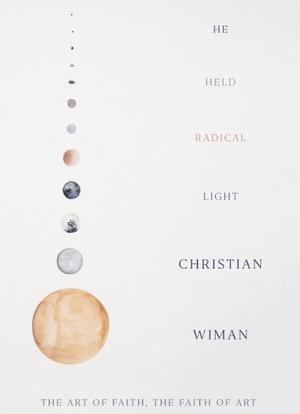
CW: That the change wasn’t so great, maybe? Ifs eternally, etc.
Just kidding. Sort of. The great change in my life has involved focusing so much of my energy on living, breathing people right in front of me. As I say, that’s a very different experience from being an editor or a writer. And also, of course, my work as an artist and my life as a Christian are much more directly entangled now. This is good for my life. Is it good for my art? I wouldn’t be able to make that judgment.
TC: You interact closely, one might say intimately, with people who identify their work in terms of a religious “mission” or “calling.” Do you regard your life as a poet in such terms?
CW: Very much. I’m not embarrassed to say that I have felt a call to write, though I would hasten to add that a call is no guarantee of accomplishment. Nor does one ever really know whether one has adequately answered a call or not. I feel great misgivings about my own work all the time, but I’m glad to have spent my life in this pursuit.
TC: When and how does the writing get done? Do you have a daily practice?
CW: No. I did for years, but that kind of discipline doesn’t work for me anymore. Now I kind of float, and read, and stare, and then something takes hold and it obliterates my life for a while. I can be extremely productive in a short period of time, which was not always the case.
TC: How did you write He Held Radical Light?
CW: That was very different from My Bright Abyss, which took seven years, and I wasn’t even sure it was a book for several years. For He Held Radical Light I actually had an idea. It came to me when I gave a talk at the University of Florida and then wrote my editor from the hotel. He bought the book within the hour, so then it was a matter of doing it. That’s a book I wrote quickly, in three months or so.
TC: So fast? Did you have it mapped out in your head beforehand?
CW: Not at all. I knew I had a book to write, but I had no idea where it was going—really no idea of the things it was going to include, and no idea it was going to end the way it did.
TC: So you discovered the book through the act of writing of it? Is this generally true for you?
CW: It’s always true. How can I know what I think until I see what I’ve said, as the old saying goes. It really does require letting go, every single time, no matter how apparently small the task.
TC: You write that the argument of Radical Light—I’m paraphrasing here—is that reality can only be known when its elusiveness is part of the knowing. That sets up a dialectic between the fugitive moment, with its ambiguity, uncertainty, contingency, and what we might call eternity. At the very beginning of the book you admit something that every reviewer has picked up on, your youthful desire to write a poem “that will live forever,” to achieve a kind of eternal perfection—
CW: Yes.
TC: —but what’s less noted is how you answer that desire by the book’s end, with your “Poem Ending with a Sentence from Jacques Maritain.” In the poem, you quote the French Thomist philosopher’s description of “that kind of imperfection / through which infinity wounds the finite.” This paradox, of an unknowing that defines knowing, a wounding, clarifying imperfection, is the arc the book, which is to say, the arc of an engaged life of faith.
CW: Oh, that’s definitely the whole book. When I say I had an idea, what I really mean is I had an impulse. I had the germ of an idea, which was basically what you just articulated, that reality is only known when its elusiveness is also known, and something in that elusiveness is absolute. We keep getting intimations of that in our lives. For me, the primary way that I’ve always gotten that is through poetry, so it made sense to end the book with a poem. And with my twin daughters, of course, who are all over the final scene.
TC: Yes. Your family is a steady—and steadying—presence in all your writing. The English literary critic Cyril Connolly once observed that there is “no more sombre enemy of good art than the pram in the hall.” Obviously, this is not true for you.
CW: I wonder how much childcare ol’ Cyril actually did. Anyway, I would have said that when I was young too—and sometimes it does feel to me like that still, because I spend so much time making meals and cleaning up and shuttling kids from one thing to another. But I’ve written six or seven books in the ten years since my girls were born, so it seems that I do find time. I have a wonderful memory of writing parts of Stolen Air, my book of Osip Mandelstam translations, while balancing one or even two infants on my lap. I remember thinking it was some kind of great gift I was being given, this connection to a long-dead Russian poet and these two new lives right at the same time.
TC: In 2017, you edited the anthology Joy: 100 Poems. The timing was notable at YDS because it closely followed two other books on joy by your colleagues Miroslav Volf (Joy and Human Flourishing, 2015) and Mary Clark Moschella (Caring for Joy: Narrative, Theology and Practice, 2016). What is it about the phenomenon of joy that took on such contemporary importance in the last decade? The earlier books were written pre-Trump, while yours was published a year after his election. What do you think the state of the discussion is now? Has our political reality led us into a “post-joy” era?
CW: I expect people are talking of joy precisely because its existence feels imperiled. I know that, personally, I never gave the idea of joy a thought until I’d encountered serious, life-threatening despair. Which is to say, there’s no such thing as a “post-joy” era, at least so long as humans continue to exist. As for my own book, it was prompted by Miroslav. We take regular walks together and it came up during one of these. I realized immediately that it was an occasion for me to think through this aspect of existence in the only way I can, with poetry.
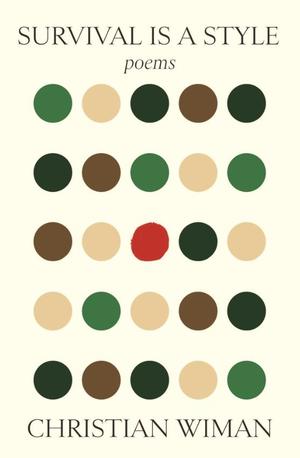
CW: A couple of those poems you mention were actually written before I came to YDS. I sometimes hold on to poems for many years before publishing them. I’m not sure my major concerns have changed all that much over the years. Does any writer’s?
TC: Many of your closest colleagues and friends now are biblical scholars, historians, theologians—people deeply knowledgeable about religion and faith, but they are intellectuals, not fellow artists or literary people. This is very different from your life at Poetry magazine. How does being part of this new family influence or inform your thought and creativity? Do you navigate scholarly circles differently than literary circles? Are dual personas required?
CW: Not so much dual personas as dual systems of thought and reference. A couple of years ago I was at a conference having a conversation with a group of theologians and other divinity scholars. I mentioned the poet John Ashbery in passing and not a single person had even heard of him. Ashbery is hardly one of my favorite poets, but he is hands-down the most well-known American poet of the past fifty years. On the other hand, I mentioned Rowan Williams to a group of writers and literary scholars the other day and not a single person recognized the name. Does this matter? Maybe only to me and my personae.
But that’s not quite what you asked. I’ve learned tons from being here. I mentioned my walks with Miroslav and what that has led to. I also spent a few months listening to my colleagues’ lectures while I was working out. I knew I’d never be able to read everyone’s books, but it turns out that it’s possible to find just about everyone giving a talk on YouTube. I got a whole YDS education while pumping iron in Planet Fitness.
But it’s probably the students who affect me the most. As you note, I’ve written poems that emerged out of actual classes (“Meaning Is Not Man’s Gift to Reality”), and I’ve been very directly motivated and challenged by perceptions made by students in papers or discussions. They’re really the lifeblood of this place, the students.
Timothy Cahill ‘16 M.A.R. writes on religion and art. His forthcoming book is titled Selling Norman Rockwell: Art, Money, and the Soul of an American Museum.